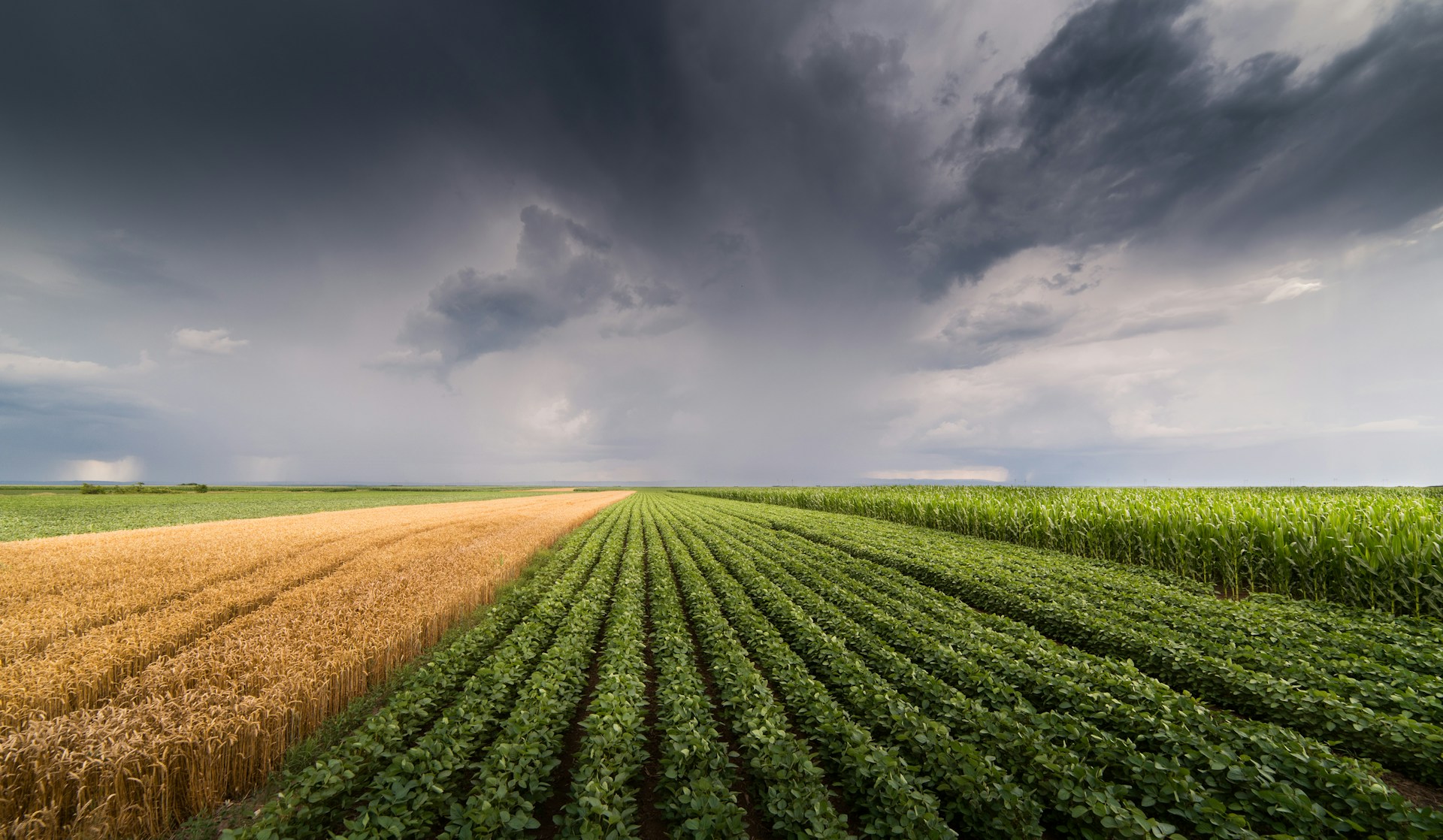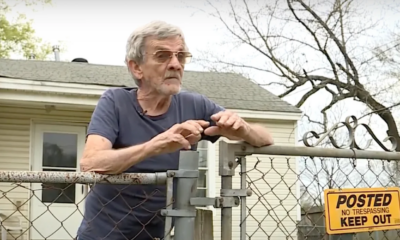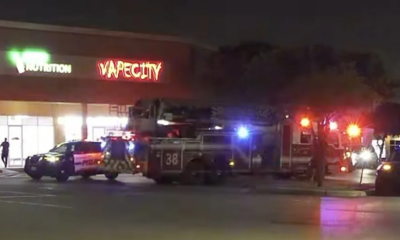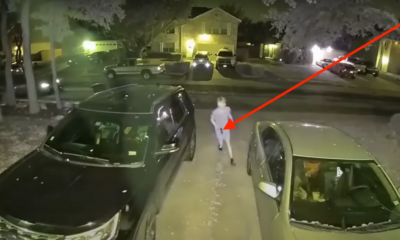Preparedness
Mississippi Security Guard Murdered with Own Gun by Teen Thieves

A tragic event unfolded in the early morning hours of Monday in Jackson, Mississippi, resulting in the death of Roy Love, a 60-year-old security guard at M&M Food Mart. Love was known for his dedication to his work, often remarked by his neighbors.
Tony Williams, a local resident, stated, “He came to work every day.”
Similarly, another neighbor, Jackie Kitchens, attested, “This man gets up every day and comes to work.”
The incident occurred around 1:30 a.m. when three teens, two aged seventeen and one sixteen, arrived at the store. Love, suspecting mischief, attempted to persuade them to leave the premises. Instead of complying, the trio allegedly decided to rob Love.
In the ensuing altercation, they somehow managed to steal Love’s firearm, using it to take his life. Police Chief Joseph Wade, after viewing the surveillance footage, described the incident with shock and disbelief.
“They attacked him, took his weapon, and fired on him with [it],” Wade reported at a press conference. “This was very bold. They were trying to steal the security guard’s gun, and they got it and killed him in the process — unbelievable.”
Despite the provocation, Love did not use his weapon, the police chief added. Following the shooting, the local police received a tip that led them to an area less than half a mile from the M&M Food Mart. There, they found and apprehended the three teenagers.
Love’s sudden death sent shockwaves through the community. “I can’t believe it, man,” expressed Tony Williams, Love’s friend. “He was well known in the neighborhood, a neighborhood legend. … A great guy. It’s mind-blowing.”
Love was known not only for his commitment to his job but also for his protective nature. Jackie Kitchens recalled Love’s vigilance, stating, “He sees us pull up out here. If it’s women, he’s going to come out here to make sure we’re in there safe and come back to our cars safe.”
Following the tragic incident, the three teenagers have been charged with capital murder and are being held without bail. Their identities are not disclosed due to their minor status.
Kitchens, grieving the loss of her neighbor, said with a heavy heart, “For them to try and take his little gun from him, that’s just sad.” The community mourns the loss of Love, a man who devoted his life to ensuring their safety. “He will be missed,” Kitchens concluded.
Watch a local news report about the incident below:
Let us know what you think, please share your thoughts in the comments below.

Preparedness
Unlock Homesteading Secrets: Navigate Legal Hurdles for Self-Sufficiency

Homesteading has captured the imagination of many Americans eager to embrace a more self-sufficient lifestyle. However, the dream of living off the land is heavily influenced by the homesteading laws and restrictions in your area.
While every state in the U.S. permits homesteading, the degree of friendliness towards homesteaders varies significantly. However, it’s crucial to remember that state approval doesn’t necessarily equate to local acceptance.
For instance, in New York, homesteading is restricted to specific boroughs, and many Homeowners Associations (HOAs) impose limitations on keeping small livestock. Hence, it’s vital to thoroughly research local homesteading laws to understand what is feasible for your homestead.
The concept of homesteading is deeply rooted in American history. “The 1862 Homestead Act accelerated settlement of U.S. western territory by allowing any American, including freed slaves, to put in a claim for up to 160 free acres of federal land,” according to The History Channel. This act required settlers to reside on the land for five years, build a home, and cultivate the land.
Although the Homestead Act was repealed in 1976, homesteading continues under new laws that safeguard the rights of modern-day homesteaders. Today, homesteading encompasses self-sufficiency practices, from growing food to sustainable living, whether in rural expanses or urban rooftops.
The type of homestead you establish largely depends on the “laws of the land.” Many states offer homestead rights through a Declaration of Homestead. As Mother Earth News notes, “A Declaration of Homestead is a simple legal document which can help to protect your house and property in times of economic hardship.” These statutes aim to preserve family homes from creditors during financial difficulties.
The extent of these protections varies by state. For example, Indiana allows individuals to claim up to $10,000 of their property as a homestead, with no maximum size restriction, offering considerable protection from creditors.
Local regulations also play a crucial role. Deed restrictions may limit what you can do with your property, such as prohibiting fences for livestock. Zoning regulations might restrict selling homemade goods, and building codes could dictate the materials and structures you can use.
Access rights, like easements for utility workers, must also be considered. These rights may prevent you from constructing anything that obstructs access to essential services.
Raising livestock is a common aspect of homesteading, but it comes with its own set of legal challenges. Regulations can vary widely, with some areas allowing chickens while others may have ordinances against them. Additionally, licensing may be required for certain activities, like stocking a pond with specific fish species.
Selling homemade products is another area subject to regulation. “New cottage food laws allow the sale of items made within home kitchens, but details vary by state,” according to Countryside. These laws often restrict certain foods to ensure consumer safety.
Wildlife protection laws can also impact homesteaders, as animals like deer and raccoons may pose challenges. Furthermore, some localities have laws prohibiting edible gardens in front yards, so it’s essential to verify these regulations before planting.
Beekeeping and rainwater harvesting are popular homesteading activities, but both are subject to strict regulations. Local laws may limit the number of beehives you can keep, and while rainwater harvesting is encouraged in Texas with tax incentives, it remains illegal in Colorado.
In summary, while the allure of homesteading is strong, it’s imperative to navigate the complex web of laws and restrictions that govern this lifestyle. Thorough research and understanding of local regulations are essential steps for any aspiring homesteader.
Let us know what you think, please share your thoughts in the comments below.
Preparedness
Shield Your Crops from Heavy Rains with These Tactics

As spring and summer approach, so do the heavy rains that can threaten the crops we depend on. These downpours can result in waterlogging, soil erosion, and plant diseases, making it crucial to employ strategies for safeguarding crops from such weather.
The key to ensuring crop survival and productivity lies in effective protection methods.
One of the most fundamental steps in crop protection is establishing a proper drainage system. Without it, even the most well-covered crops can suffer. “You can cover and protect your crops as much as you’d like, but if you don’t have adequate drainage, you may do a lot of work for nothing.”
A well-maintained drainage system ensures that water flows freely and helps prevent soil erosion. Simple measures, like digging canals or channels, can direct excess water away from your garden.
For those in regions prone to heavy rainfall, installing an underground drainage system can be beneficial. This setup helps remove excess water from the soil, preventing waterlogging and its detrimental effects on plant roots.
The condition of the soil is another critical aspect to consider. Waterlogged soil can reduce oxygen levels, leading to root rot and stunted growth. Preparing fields before planting to ensure proper drainage and aeration can make a significant difference.
Mulching is another effective method to combat heavy rains. By covering the soil, mulch reduces erosion and prevents rainwater from washing away valuable soil particles.
In addition to drainage and soil preparation, rain covers offer a direct way to shield crops from excessive water. These covers should be durable and tear-resistant to withstand both heavy rain and wind.
Row covers, made from materials like polypropylene or polyethylene, are lightweight and breathable. They allow water and air to pass through while keeping insects and pests at bay. Row covers are particularly useful for protecting delicate crops like lettuce and spinach.
Moreover, row covers can safeguard young seedlings from harsh weather conditions. They are easy to install and can be removed once the weather improves.
Tarps provide another layer of protection for gardens. Constructed from durable materials such as canvas or vinyl, tarps create a temporary shelter against rain and wind. To prevent them from blowing away during storms, it’s essential to anchor tarps securely with stakes or weights.
Plastic sheeting is a cost-effective solution for crop protection. It can serve as a temporary greenhouse or cover for garden beds. When using plastic sheeting, ensure it’s securely anchored and ventilated to prevent moisture buildup.
Be cautious not to use overly thick plastic, as it can trap heat, causing plants to overheat and dry out. Proper ventilation is key to maintaining a healthy environment for your crops.
By implementing these strategies, homesteaders can effectively protect their crops from the challenges posed by heavy rains, ensuring a bountiful harvest.
Let us know what you think, please share your thoughts in the comments below.
Preparedness
Master Your Digital Privacy with These Essential Security Tips

Navigating the digital landscape requires a blend of awareness and action to safeguard your privacy and security. Just as you wouldn’t welcome a stranger peering through your window, you shouldn’t allow digital intrusions into your personal data. Protecting yourself online involves understanding and addressing four key areas: local device security, the potential misuse of smart devices, cloud data management, and secure data transmission.
Your local devices, such as phones and computers, are treasure troves of personal data. It’s crucial to secure these devices against unauthorized access. Similarly, devices like smart doorbells and virtual assistants can be exploited if not properly managed. Your data stored in the cloud, like email accounts or financial information, is another critical area, as it resides on servers beyond your direct control. Lastly, the connections that transfer data between your devices and the internet are vulnerable to interception.
To enhance your online security, consider utilizing tools developed by organizations like the Electronic Frontier Foundation (EFF), which offers resources such as the Privacy Badger browser extension. Supporting these organizations through donations can help them continue their vital work.
A fundamental concept to grasp is that the cloud consists of computers you don’t own. When you sync a photo from your phone to services like Google Photos or iCloud, it exists both on your device and on the service provider’s servers. While the cloud is integral to modern conveniences, it’s important to use it wisely.
When it comes to communication, avoid using SMS, an outdated and insecure texting protocol. Instead, opt for encrypted messaging apps like Signal, which Edward Snowden recommends as the best in its class. Signal offers encrypted messaging, voice, and video calls, ensuring your conversations remain private.
Physical security measures, such as camera covers and microphone blockers, can protect against unwanted surveillance. Look for devices with physical kill switches that cut power to cameras and microphones, ensuring they can’t be activated without your consent.
For web browsing, choose privacy-focused browsers like Brave, which respect user privacy while offering familiar features. Many browsers now include privacy settings, such as “do not track” options, to enhance security.
Email services also play a crucial role in privacy. Unlike Gmail, services like Proton Mail prioritize user privacy and are less likely to cooperate with government surveillance. Proton Mail encrypts emails and is based in Switzerland, offering a higher level of protection.
A strong password strategy is essential. Use complex, unique passwords for each account to prevent hackers from exploiting your credentials across multiple platforms. Password managers can help you generate and store these passwords securely.
Virtual Private Networks (VPNs) offer another layer of security by encrypting your internet traffic and masking your online activities. However, choose a reputable VPN service that doesn’t log user data and is based in a privacy-friendly jurisdiction.
Two-factor authentication (2FA) adds an extra security layer by requiring a second verification step, such as a code sent to your phone. This makes it harder for unauthorized users to access your accounts, even if they have your password.
Finally, encrypting local files on your devices ensures that even if someone gains physical access, they can’t easily read your data. Many devices now include encryption features that operate seamlessly in the background.
In conclusion, staying secure online requires a proactive approach and a combination of tools and practices. By understanding how digital systems work and making informed decisions, you can better protect your personal information in an increasingly connected world.
Let us know what you think, please share your thoughts in the comments below.
-

 Tactical1 year ago
Tactical1 year ago70-Year-Old Fends Off Intruder with Lead-Powered Message
-

 Tactical1 year ago
Tactical1 year agoVape Shop Employee Confronts Armed Crooks, Sends Them Running
-

 Preparedness12 months ago
Preparedness12 months agoEx-Ballerina’s Guilty Verdict Sends Tremors Through Gun-Owner Community
-

 Preparedness10 months ago
Preparedness10 months agoGood Samaritan Saves Trooper in Harrowing Interstate Confrontation
-

 Tactical1 year ago
Tactical1 year agoMidnight SUV Theft Interrupted by Armed Homeowner’s Retaliation
-

 Survival Stories2 years ago
Survival Stories2 years agoEmily’s 30-Day Experience of Being Stranded on a Desert Island
-

 Preparedness10 months ago
Preparedness10 months agoArizona Engineer’s Headless Body Found in Desert: Friend Charged
-

 Preparedness10 months ago
Preparedness10 months agoBoy Saves Dad from Bear Attack with One Perfect Shot
Ron
July 22, 2024 at 11:47 am
The present government is at fault for this crime and all the others that are being made. With their (Do the crime we will give you no time) attitude, what did they think would happen to the society
dave
July 22, 2024 at 12:42 pm
who wrote those questions? i have a question for you WTF is wrong with you?
don
July 22, 2024 at 12:55 pm
Reuse of the death penalty will deter these attacks. A slap on the wrist is no fear for these thugs. A demonstration that we are sick of their actions should have effect. None of that Black Oppression crap either! These ae thugs regardless of skin color.
Herb
July 22, 2024 at 2:08 pm
None of the poll answers address the real problem. People, like the security guard, are afraind to act first. The laws say that they have to to be in fear of bodily harm or death to act. By then, especially in this case, it is too late.
If the guard had even threatened the teens with his gun he would probably have been charged with “brandishing”. Although that probably would have prevented the attack.
Timothy
July 22, 2024 at 2:49 pm
Amerika needs more criminal control. Guns NEVER act alone. NEVER (vehicles don’t either)
CPO Bill
July 22, 2024 at 8:54 pm
No matter what ya do, biden happens somewhere! Maybe some more training and be alert!